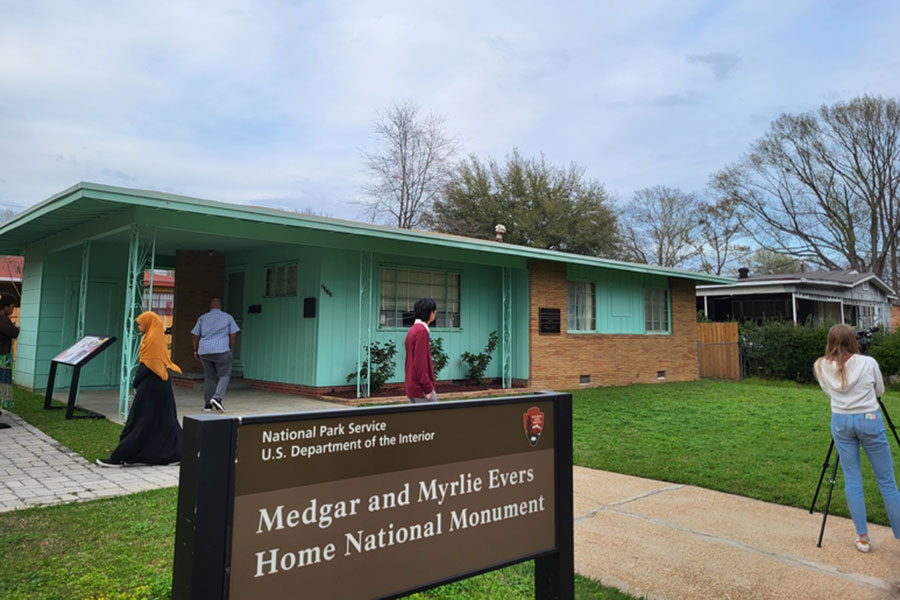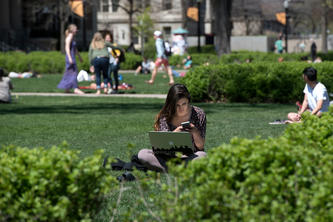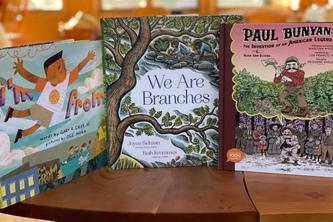
Students in the U of M’s College of Liberal Arts enrolled in the “MLK 3000: Civil Rights Research and Social Justice Experience Immersion” course recently traveled to the southern U.S. during spring break to deepen their understanding of the civil rights movement and its social, economic, and political impacts—effects which still reverberate throughout society.
The students visited museums and historical sites in six cities over six days that were foundational to the civil rights movement, and in many cases, students were able to hear and see firsthand accounts from survivors of some of those events, as well as past- and present-day civil rights leaders.
“Meeting people who have actually lived these experiences, that’s not just something you can know,” says first-year student Zacharius Khan. “I have a lot more to learn. That’s why coming on this trip was important.”
MLK 3000 instructor Ezra Hyland says that the course’s theme of “The past is now” is appropriate.
“History is not the past. History is a current event,” says Hyland. “This has been a wonderful opportunity for us, to see how we got here. It’s something I think that everyone in America should try and do.”
The course is offered through the U of M’s MLK Program, which provides educational experiences that foster students' engagement with issues of power, privilege, and social justice.
Two Hubbard School of Journalism students, first-year student Alec Zadra and junior Calli Hadler, reported on the trip from start to finish, with Hadler detailing the students’ activities through video and Zadra through text, as they traveled to sites in Memphis, TN; Selma, Birmingham, and Montgomery AL; and Jackson and Philadelphia, MS. Much of this story is drawn from their experiences documented in this series for the College of Liberal Arts.
In Memphis, the students visited the National Civil Rights Museum, built around the site of Martin Luther King Jr.’s assassination at the Lorraine Motel, as well as the I AM A MAN Plaza, where in 1968 nearly 1,000 sanitation workers marched twice daily to city hall fighting for equal pay and better working conditions.

In Selma, the students learned about the 1965 Selma-to-Montgomery march—a watershed moment in the fight for Black Americans’ voting rights—and took a tour of the city with JoAnne Bland, a co-founder and former director of the National Voting Rights Museum, who had been arrested 13 times by the time she was 11 for participating in civil rights protests.
“I just think it’s super important to immerse ourselves into the space that we’re learning about,” says first-year student Issac Wahl. “Learning about something from a book or lecture is helpful, but only to a certain extent.”
Betty Mae Fikes, a singer and activist known as the “Voice of Selma,” later joined the class and along with Bland led the students to Live Oak Cemetery, where they viewed a monument for Nathan Bedford Forrest, a Confederate general, slave trader, and the first Ku Klux Klan grand wizard, with a plaque that reads “Defender of Selma, Wizard of the Saddle. Untutored Genius. The First With the Most.”
Students also visited the 16th Street Baptist Church in Birmingham, the site of a 1963 Klan bombing that killed four children, later hearing from Sarah Collins Rudolph, the lone survivor of the bombing whose sister Addie Mae Collins was killed.
“September 15th, 1963, is a day I will never forget,” Collins Rudolph told the students.
Evan Johnson, a senior advisor with the MLK Program, says the trip’s purpose is for students to have the opportunity to learn about the connection between past and present.
“The past … is very alive and present and connected with us today,” says Johnson. “And until you understand it [history], you can’t be released from it, nor be informed on how you want to change it.”
Students even heard directly from University of Minnesota graduate Horace Huntley, one of the leaders of the 1969 takeover of the U of M's administration building. That protest eventually led to the creation of the University’s Department of African American and African Studies and the MLK Program—the very program that brought the students on their journey today.
Students interested in taking the MLK 3000 immersive experience course in a future year can email [email protected].
See the full series by Alec Zadra and Calli Hadler at the College of Liberal Arts
- Categories:
- Arts and Humanities
- Equity and Diversity





